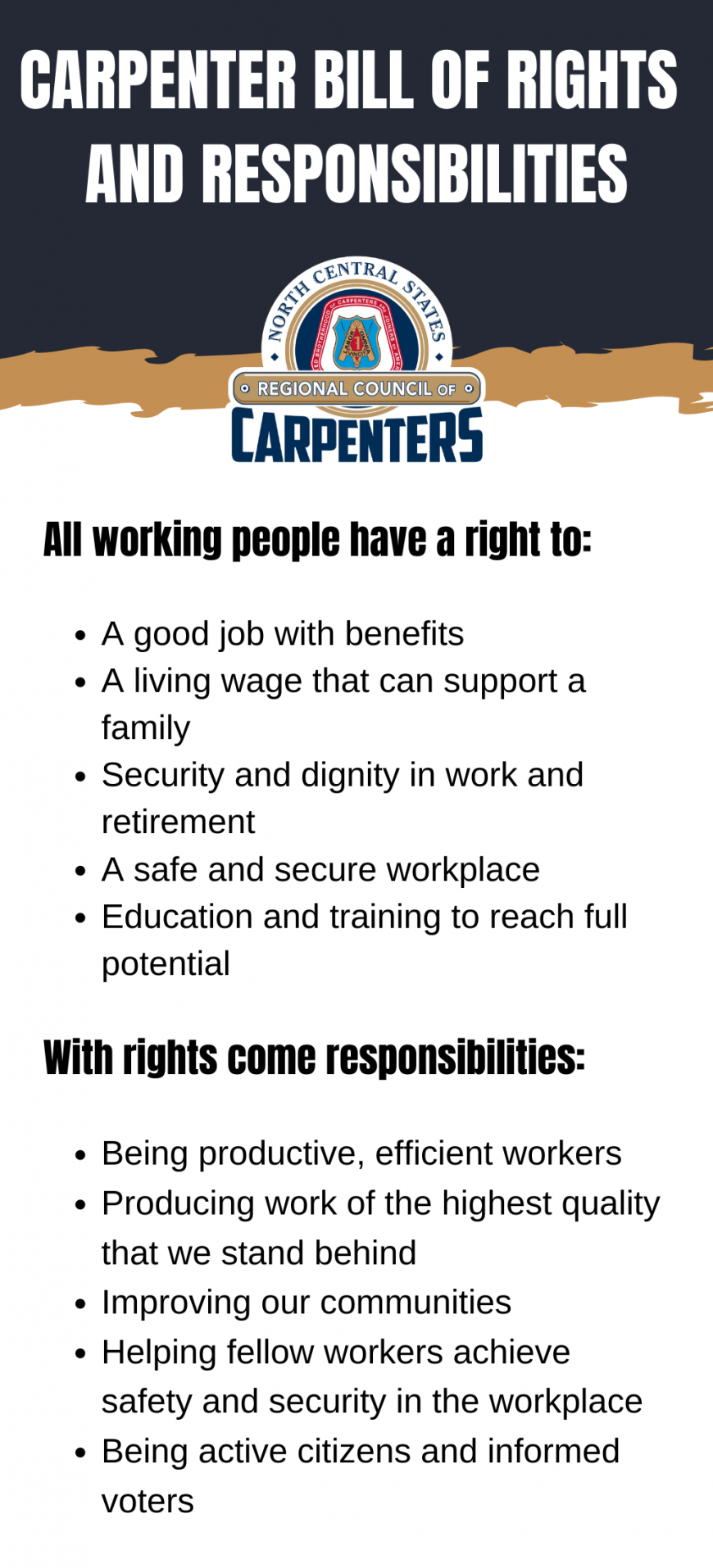How Much Do Union Carpenter Apprentices Make

The median wage is the wage at which half the workers in an occupation earned more than that amount and half earned less.
How much do union carpenter apprentices make. While ZipRecruiter is seeing salaries as high as 97850 and as low as 20229 the majority of Union Carpenter salaries currently range between 37164 25th percentile to 59745 75th percentile with top earners 90th percentile making 92675 annually in Oregon. Unionized workers make about 51000 per year. If the Position is Paid How Much Can You Get An apprentice carpenter is someone who is learning to become a master carpenter which essentially takes 4 years of practice and getting qualified.
Furthermore how much do union carpenters make. The Union Effect on Salaries The BLS reports that the top 10 percent of carpenters earn over 73100 annually or greater than 3514 per hour compared to a national average of. Local program requirements may vary from area to area please contact individual programs for more information.
The median annual wage for carpenters was 49520 in May 2020. By reading this article you will learn about how much you get paid and some of the qualifications and skills needed to become a carpenter apprentice. Apprentices get paid about 30 to 50 of what experienced carpenters make.
How much does a Carpenter Apprentice make at CARPENTERS UNION in the United States. -A 4000 apprenticeship contract registration fee -A basic level tool set and personal protective equipment ie hard hat safety glasses and safety boots. If you are union carpenters.
An entry-level Carpenter Apprentice with less than 1 year experience can expect to earn an average total compensation includes tips bonus and overtime pay of C1750 based on 40 salaries. As of May 2019 BLS reported that the average carpenter salary was 53850 annually or 2541 per hour. The average salary for a carpenter apprentice is 1402 per hour in Philadelphia PA and 6000 overtime per year.
FAQs Who can be a carpenter apprentice. First Street Santa Ana CA 92703. Women minorities and veterans are strongly encouraged to apply.


















